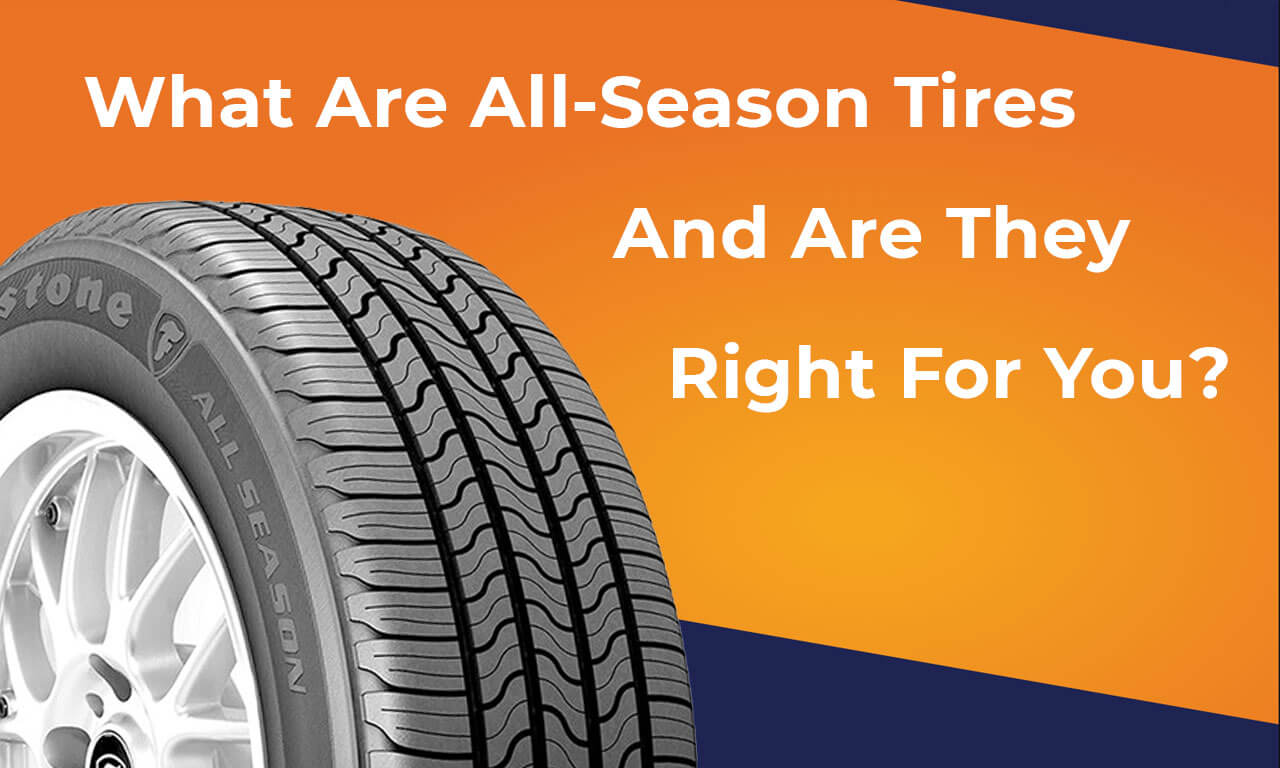What Are All-Season Tires, And Are They Right For You?

Tires are one of those things that can affect how a car drives and how it performs — and even the safety of the occupants of that car. It’s important to know what type of tire you’re getting, as this can make a big difference in your speed or maneuverability.
It is important to know that there are different types of tires, and we can choose the right one for our car. This article aims to help you decide what type of tire you should get. We will discuss all-season tires and when it’s best to use them.
All Season Tires
All-season tires are designed for use in all four seasons of the year. They are, essentially, a hybrid between summer and winter tires. All season tires typically have a lower tread depth than dedicated winter or summer tires and can handle some light off-road conditions without difficulties.
They are suitable for drivers that do not have snowy weather in their area and do not drive in snowy conditions. All-season tires are fitted with tread designs that provide stability on wet pavement but also give traction on ice. These tread designs improve them in heavy rains and light snowfalls because they disperse water more quickly.
The advantage of all one tire to combat weather changes is that they will be able to adapt with you as you go into each season of the year, giving you more flexibility in your driving.
Which Are The Benefits Of All-Season Tires?
These tires are versatile and relatively inexpensive compared to dedicated winter or summer tires. All-season tires can be found at most automotive stores around the country. Part of their design is the tread design which makes them great in all weather conditions because their tread patterns allow water to drain quickly from the surface of the road so you can keep driving with ease no matter how hard the rain or snow falls.
They offer a good balance of wet and dry traction on your vehicle. They have tread compounds that allow them to handle light snow and ice. Because they are so versatile, they are often used in all-terrain vehicles (ATVs), motorcycles, golf carts, and many other off-road vehicles.
When Is A Dedicated Tire Better?
All-Season tires are not ideal in winter weather conditions as they lose their grip when the temperature drops below 32 degrees Fahrenheit (0°C). Unless you drive in a frozen area, all-season tires will not provide the traction you need to get around.
If your vehicle only drives in mild winter conditions, then all-season tires are a good choice, even on snow and ice. However, because they are not intended to be used on snow or ice at temperatures below 32 degrees Fahrenheit (0°C), these cars and trucks will have difficulty handling deep puddles of water, melting snow, and slush from being thrown into the wheel wells.
Summer Tires
Summer tires are typically made of softer, less durable materials (“lower durometer”) than their winter equivalents. Summer tires are designed to provide maximum performance and traction on warm, dry roads.
They work best when driven between 70 and 100 degrees Fahrenheit (21-38°C). These tires are not designed for operating in wet conditions or temperatures below 40 degrees Fahrenheit (4.5°C). That’s why these tires work well for drivers who live in warmer climates.
Although summer tires can be used year-round if you can afford them, all-season tires are better suited for use from fall to spring because they will provide better traction during the snowy months and over icy roads.
Winter Tires
When the temperature drops below 32°F (0°C), winter tires will provide the best traction. They work well in light snow and ice and provide maximum traction when driving on wet or snowy roadways. Their tread designs are ideal for handling slick surfaces, even under extreme weather conditions.
Winter tires can be used from fall to spring if you live in a climate that experiences consistent freezing temperatures. However, winter tires are designed with an extra layer of rubber that is intended to keep most of their grip even after they become covered in snow and ice.
Winter tires usually have higher sipes and grooves that let water pass through the rubber more quickly. This is why they are designed for colder weather climates.
Off-Road Tires
Tires designed for off-road driving have tread designs that provide traction on soft surfaces such as sand, mud, and dirt. They also have fewer grooves than other tires to prevent clogging from particles on the road.
These tires are similar to all-season tires in their versatility. They can be used all year round and will hold up well under different weather conditions. You can expect these tires to give you confidence and increased stability, even if you like to drive in the mountains or on the beach.
The Bottom Line
The tire industry has evolved over the years with new technologies designed to enable drivers to get the most out of their vehicles and enjoy driving in the best possible conditions. Tires are available for various weather conditions, as well as special tires for winter or summer weather, so you can get a kit that fits your driving needs perfectly.










